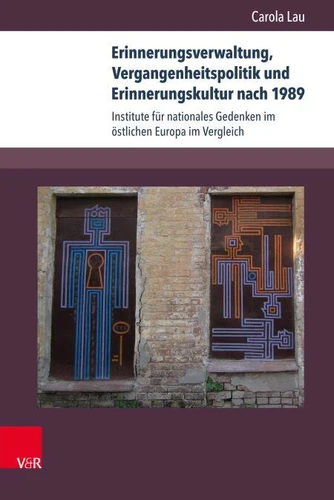Erinnerungsverwaltung, Vergangenheitspolitik und Erinnerungskultur nach 1989. Institute für nationales Gedenken im östlichen Europa im Vergleich
Par :Formats :
Disponible dans votre compte client Decitre ou Furet du Nord dès validation de votre commande. Le format PDF est :
- Compatible avec une lecture sur My Vivlio (smartphone, tablette, ordinateur)
- Compatible avec une lecture sur liseuses Vivlio
- Pour les liseuses autres que Vivlio, vous devez utiliser le logiciel Adobe Digital Edition. Non compatible avec la lecture sur les liseuses Kindle, Remarkable et Sony
 , qui est-ce ?
, qui est-ce ?Notre partenaire de plateforme de lecture numérique où vous retrouverez l'ensemble de vos ebooks gratuitement
Pour en savoir plus sur nos ebooks, consultez notre aide en ligne ici
- Nombre de pages825
- FormatPDF
- ISBN978-3-8470-0661-9
- EAN9783847006619
- Date de parution07/11/2016
- Protection num.pas de protection
- Taille12 Mo
- Infos supplémentairespdf
- ÉditeurV&R Unipress
Résumé
What happens when social remembering becomes institutionalised? Carola Lau compares Eastern European institutions which, after 1989, essentially took it upon themselves to apportion blame, commemorate victims, provide historical education and research whilst opening their archives. This study gives a revealing institutional history of remembering for Hungary, Poland, Romania, Slovakia, Ukraine and the Czech Republic which has hitherto been lacking.
With her eye on past-reconstruction policies, memory management and memory culture, she describes the multi-dimensional supporting structures and often conflict-ridden negotiation processes interwoven with social remembering.
With her eye on past-reconstruction policies, memory management and memory culture, she describes the multi-dimensional supporting structures and often conflict-ridden negotiation processes interwoven with social remembering.
What happens when social remembering becomes institutionalised? Carola Lau compares Eastern European institutions which, after 1989, essentially took it upon themselves to apportion blame, commemorate victims, provide historical education and research whilst opening their archives. This study gives a revealing institutional history of remembering for Hungary, Poland, Romania, Slovakia, Ukraine and the Czech Republic which has hitherto been lacking.
With her eye on past-reconstruction policies, memory management and memory culture, she describes the multi-dimensional supporting structures and often conflict-ridden negotiation processes interwoven with social remembering.
With her eye on past-reconstruction policies, memory management and memory culture, she describes the multi-dimensional supporting structures and often conflict-ridden negotiation processes interwoven with social remembering.



